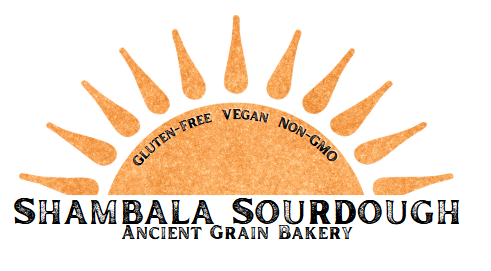
Oats
Are oats naturally gluten-free?
Yes. We have addressed the issue comprehensively of whether or not oats are safe for people on a gluten-free diet, but the confusion still exists. The explanation is really very simple; oats are naturally gluten-free but are a rotation crop with wheat, barley and rye.
As any farmer knows volunteer plants will grow here and there within the alternative crop if they have been planted in the field the previous year, which is exactly what happens. So the oats become contaminated with wheat, barley or rye in the field and with the harvesting and processing equipment that is also used to harvest and process those grains. In this scenario there is no way to prevent cross-contamination therefore regular oats are not safe to eat on a gluten-free diet.
However Gluten Free Certified Oats for the gluten-intolerant are used in our flour blends and it is the only way to safely consume oats or oat products. Certified gluten-free oats are grown in a similar fashion as organic crops. To begin, a field must lay fallow for 4 years, eliminating the possibility of volunteer plants. All harvesting and processing equipment must be solely used for the production of oats. The final step is the certification process. Farmers that grow and process oats in this way can then apply for gluten-free certification through one of the national gluten intolerance organizations, who then inspect and test the oats and the processing facility to ensure the above steps are followed and that the oats do in fact meet the U.S. accepted standard of gluten-free, currently less than 20ppm. The inspection is similar to kosher inspections and in fact is conducted by rabbis.
Oats come in many forms: hulled whole, steel cut, thick and regular rolled type and quick oats. Oats are a good source of soluble fiber, which helps lower blood cholesterol.
Unique Oat Antioxidants Reduce Risk of Cardiovascular Disease:
Oats, via their high fiber content, are already known to help remove cholesterol from the digestive system that would otherwise end up in the bloodstream. Now, the latest research suggests they may have another cardio-protective mechanism.
Antioxidant compounds unique to oats, called avenanthramides, help prevent free radicals from damaging LDL cholesterol, thus reducing the risk of cardiovascular disease, suggests a study conducted at Tufts University and published in The Journal of Nutrition.
In another study also conducted at Tufts and published in Atherosclerosis, researchers exposed human arterial wall cells to purified avenenthramides from oats for 24 hours, and found that these oat phenols significantly suppressed the production of several types of molecules involved in the attachment of monocytes (immune cells in the bloodstream) to the arterial wall—the first step in the development of atherosclerosis.
Oat avenanthamides suppressed production of ICAM-1 (intracellular adhesion molecule-1) and VCAM-1 (vascular adhesion molecule-1), E-selectin, and the secretion of pro-inflammatory cytokines KL-6, chemokines IL-8 and protein MCP-1 (monocyte chemoattractant protein). For best oat benefit absorption, vitamin C can help assimilation so cut an orange (which is rich in vitamin C) in quarters top eat with your Sunshine Bread sandwich, or top your Oaty Scones with Orange Marmalade! However in our flour blending with Teff high in C, your absorbtion is already improved.
